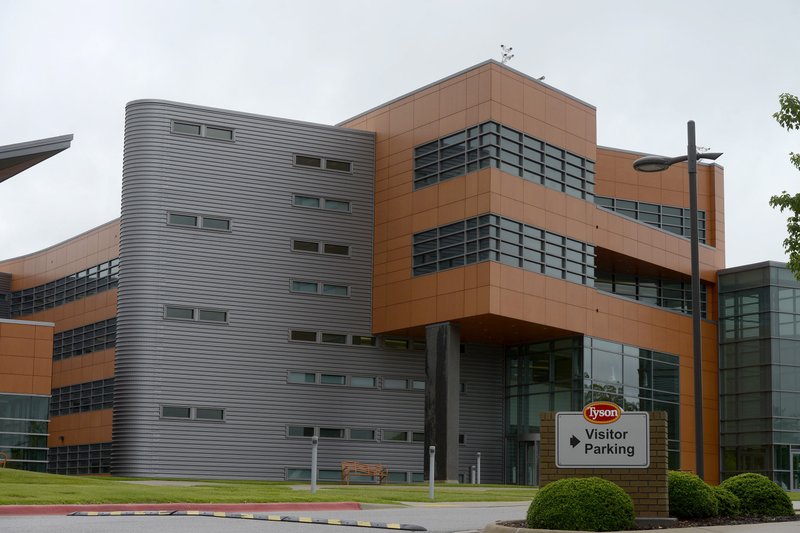A Maryland appellate court on Friday ruled that a farm manager disabled by a lung disease while caring for chickens owned by Tyson Foods Inc. was a Tyson employee and not an independent grower.
The case focused on Mauro Garcia, hired in 2009 to do farmhand jobs -- picking up dead birds, cutting the grass and changing out light bulbs, who began managing the farm later that year after the owner died, court documents show. Garcia stayed on as a "resident manager" for years, raising broiler chickens for Tyson under other owners.
He was diagnosed in April of 2014 with hypersensitivity pneumonitis and interstitial disease, a lung inflammation contracted by repeatedly breathing organic dusts. The dusts can contain fungus spores from moldy hay or bird droppings, according to the American Lung Association.
A few months later, Garcia filed a Workers' Compensation claim against the new property owner, Dai Nguyen, who did not carry insurance to cover Garcia's medical treatment. Garcia then went to the Uninsured Employers Fund for assistance, according to documents. In the ensuing years, the Uninsured Employers Fund and Tyson presented their cases for who was responsible for Garcia's illness.
A 2016 hearing found that his medical condition arose from employment on the farm and that Nguyen and Tyson were co-employers at the time and liable, the Workers' Compensation Commission ruled. Tyson appealed the decision to the Circuit Court for Worcester County in Maryland, where a two-day trial took place in 2018.
The circuit court rejected both motions from the Uninsured Employers Fund and Tyson, sending the matter to a jury that found Tyson was not a co-employer, records show. The employers fund challenged the ruling and presented its motion to a Maryland appeals court that reversed the circuit court's judgment on Friday.
"Based on the level of control that Tyson had over how and when Mr. Garcia completed his work, Tyson was a co-employer," Judge Joseph Wright said in the court's opinion in the 3-2 decision.
In the vertically-integrated structure of U.S. chicken businesses the companies own nearly every aspect of production -- from the hatcheries and feed mills to the transportation and processing plants -- and the contracts used to raise the birds.
"Our thoughts are with Mr. Garcia and his family as they deal with his unfortunate health issues," Tyson spokesman Worth Sparkman said in an email Tuesday. "However, with regard to the legal case, we are disappointed that the Maryland Court of Special Appeals reversed the jury's decision, and we will vigorously pursue a reversal of this erroneous opinion."
Wright said the appellate court based its ruling on five factors to determine whether the employee-employer relationship exists: the power to select and hire the employee; the payment of wages; the power to discharge; the power to control the employee's conduct; and whether the work is part of the regular business of the employer.
"Of the five factors, the factor of control stands out as the most important," he said in the opinion. In that regard, Tyson required Garcia to be on the farm 24 hours a day, seven days a week; Tyson provided an 18-page broiler growing guide that instructed how to raise the chickens at each stage of their life cycle; Tyson's employees taught Garcia everything he needed to know about raising chickens, inspected the farm and chickens regularly and told Garcia ways to improve his performance, according to documents. Tyson also held the ability to terminate its relationship with Nguyen if Garcia did not comply with requirements in the contract or those given to him by Tyson employees. In addition, Tyson posted its own sign at the Nguyen farm, provided chicken feed, contracted for poultry litter treatment and provided veterinary services to the birds that were raised by Garcia.
"We further hold that the circuit court erred in not granting [the Uninsured Employers Fund] motion for judgment and reverse the judgment of the circuit court," Wright ruled.
Judge Steven Gould dissented. In his view, Tyson did not select or hire Garcia; Nguyen paid Garcia's wages, not Tyson; Tyson had no ability to fire Garcia; Tyson had no ability to set Garcia's work hours; and Tyson would communicate with Nguyen about changes in practices for raising chickens, documents show.
"Tyson did not have the requisite control over Mr. Garcia to be considered his employer," Gould said. "At a minimum ... the evidence 'cut both ways.' I would, therefore, affirm the judgment of the circuit court."
Business on 11/27/2019
